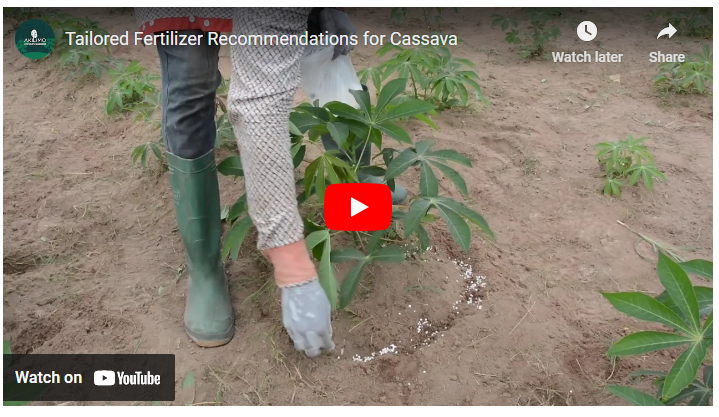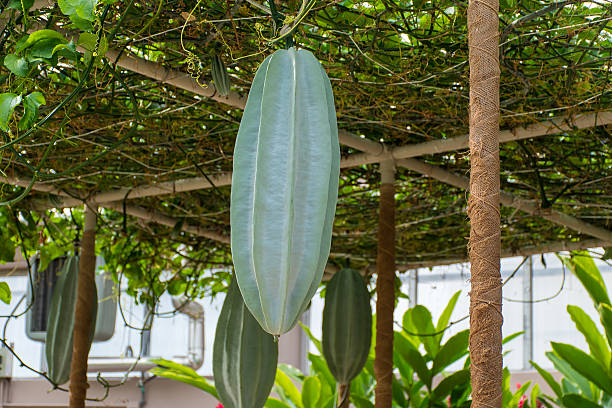Cassava, also known as manioc or yuca, is a widely cultivated root vegetable that serves as a staple food for millions of people around the world. To ensure a healthy and bountiful cassava harvest, it is crucial to provide the plants with the right nutrients.
Before we delve into the best fertilizers for cassava, let’s understand why fertilizing is essential for this crop. Cassava plants have specific nutritional requirements to thrive and produce abundant roots. Fertilizers provide the necessary nutrients that may be deficient in the soil, ensuring optimal growth and development.
The best fertilizer for Cassava is Urea, Compost, Fish Emulsion, Bone Meal, Seaweed Extract, and Blood Meal. By choosing the right fertilizer, you can enhance soil fertility, increase nutrient uptake, and boost overall cassava productivity.
In this article, we will explore the 15 best fertilizers for cassava, both organic and inorganic options, to help you maximize your crop yield and quality.
15 Best Fertilizers for Cassava Organic & Inorganic
Here are the top 15 fertilizers for cassava, categorized into organic and inorganic options:
Organic Fertilizers
1. Compost:
Compost is a fantastic organic fertilizer for cassava. It enriches the soil with essential nutrients, improves soil structure, and enhances moisture retention.
Read Also: 15 Best Fertilizer for Rice Farm [Organic & Inorganic Fertilizers]
2. Manure:
Animal manure, such as cow or chicken manure, is an excellent source of organic matter and nutrients for cassava. It releases nutrients slowly, providing a steady supply throughout the growing season.
Read Also: 15 Best Fertilizers for Pepper [Organic & Inorganic]
3. Bone Meal:
Bone meal is a natural fertilizer high in phosphorus, which promotes robust root development in cassava plants. It is an excellent choice for soils lacking phosphorus.
Read Also: 15 Best Fertilizers for Groundnut [Organic & Inorganic]
4. Fish Emulsion:
Fish emulsion is a liquid organic fertilizer derived from fish waste. It is rich in nitrogen and micronutrients, promoting vigorous growth and enhancing cassava’s resistance to diseases.
5. Seaweed Extract:
Seaweed extract is a valuable organic fertilizer that stimulates root growth, improves nutrient uptake, and enhances cassava’s tolerance to environmental stresses.
Read Also: 21 Best Fertilizer for Soybeans Organic & Inorganic: Maximizing Yield and Quality
6. Coffee Grounds:
Coffee grounds are a readily available source of organic matter that can be used as a mulch around cassava plants. As they break down, they release nutrients and improve soil fertility.
Inorganic Fertilizers
7. NPK Fertilizers:
NPK fertilizers are composed of nitrogen (N), phosphorus (P), and potassium (K) in varying ratios. They provide a balanced nutrient supply for cassava, promoting healthy foliage, root development, and overall plant vigor.
Read Also: 15 Best Fertilizers for Beans [Organic & Inorganic]
8. Urea:
Urea is a widely used nitrogen fertilizer that stimulates rapid vegetative growth in cassava. It is affordable and highly effective in boosting crop yields.
9. Superphosphate:
Superphosphate is a concentrated phosphorus fertilizer that helps improve cassava root development and enhances crop productivity.
Read Also: The Ultimate Guide to Maize Fertilizer Schedule: Boost Your Crop’s Growth
10. Potassium Chloride:
Potassium chloride is a soluble potassium fertilizer that is essential for cassava’s root and tuber formation. It improves the crop’s resistance to drought and diseases.
11. Ammonium Nitrate:
Ammonium nitrate is a quick-release nitrogen fertilizer that provides an immediate boost to cassava growth. It is suitable for correcting nitrogen deficiencies in the early stages of plant development.
Read Also: 15 Best Fertilizers for Watermelon: Organic & Inorganic
12. Calcium Nitrate:
Calcium nitrate is a water-soluble fertilizer that supplies calcium and nitrogen to cassava plants. It enhances root growth, strengthens cell walls, and improves overall plant health.
Read Also: 12 Liquid Fertilizers for Maize: Boost Your Crop’s Growth!
What is the best time to fertilize cassava?
The best time to fertilize cassava is during planting or shortly after. This allows the young plants to receive a boost of nutrients as they establish their root systems. Additionally, it’s beneficial to provide additional fertilizer during the growing season, particularly when the plants show signs of nutrient deficiency.
Read Also: 15 Best Fertilizers for Tobacco [Organic & Inorganic]
How often should I fertilize my cassava plants?
The frequency of fertilization depends on various factors such as soil fertility, crop age, and nutrient requirements. As a general guideline, it is recommended to apply fertilizer every 4-6 weeks during the growing season. However, it’s essential to monitor the plants’ response and adjust the fertilization schedule accordingly.
Read Also: Fertilizer Schedule for Tomatoes: Maximizing Your Tomato Harvest
What are the benefits of using organic fertilizers on cassava plants?
Organic fertilizers provide numerous benefits to cassava plants and the soil. They help improve soil structure, promote soil microorganism activity, and increase soil fertility over time. Additionally, organic fertilizers are more sustainable and eco-friendly than chemical fertilizers as they are derived from natural sources.
Read Also: 15 Best Fertilizer for Palm Oil Trees Organic & Inorganic: Boosting Growth and Yield
What are the best organic fertilizers for cassava plants?
There are several types of organic fertilizers that are suitable for cassava plants, including compost, manure, bone meal, fish emulsion, and seaweed extract. These fertilizers are rich in nutrients such as nitrogen, phosphorus, and potassium, which are essential for the growth and development of cassava plants.
What are the best inorganic fertilizers for cassava plants?
Inorganic fertilizers are a quick and effective way to provide nutrients to cassava plants. Some of the best inorganic fertilizers for cassava plants include NPK fertilizers, which contain nitrogen, phosphorus, and potassium, as well as micronutrient fertilizers, which provide essential trace elements such as iron, zinc, and manganese.
What is the role of nitrogen in cassava plant growth?
Nitrogen is an essential nutrient for cassava plants as it plays a crucial role in leaf and stem growth, chlorophyll production, and overall plant development. Nitrogen deficiency can result in stunted growth and reduced yields, while excess nitrogen can lead to excessive foliage growth at the expense of root development.
What is the role of phosphorus in cassava plant growth?
Phosphorus plays a vital role in the growth and development of cassava plants. It is particularly important for promoting strong root development and enhancing flowering and fruiting. Phosphorus also aids in energy transfer, nutrient uptake, and overall plant metabolism. Adequate phosphorus levels are essential for maximizing cassava yields and ensuring healthy plant growth.
How can I determine if my cassava plants need fertilizer?
Visual signs of nutrient deficiency in cassava plants include stunted growth, yellowing of leaves, and poor root development. Conducting a soil test can also provide valuable information about nutrient levels in the soil and help determine if fertile growth can also help identify when fertilizer is needed.
How often should I fertilize my cassava plants?
The frequency of fertilizer application depends on various factors, such as soil fertility, plant growth stage, and the type of fertilizer used. Generally, cassava plants benefit from regular fertilizer applications every 4-6 weeks during the growing season. However, it’s important to follow the specific application rates and schedules recommended for the type of fertilizer being used.
Can I make my own organic fertilizer for cassava plants?
Yes, it’s possible to make your own organic fertilizer for cassava plants using common household and yard waste materials. Composting kitchen scraps, grass clippings, and fallen leaves can yield nutrient-rich compost that can be used to fertilize cassava plants. Additionally, animal manure and seaweed can be used to create a homemade fertilizer.
Are there any downsides to using inorganic fertilizers on cassava plants?
While inorganic fertilizers can provide a quick boost of nutrients to cassava plants, they also have some downsides. Overuse of chemical fertilizers can lead to soil acidification, nutrient imbalances, and water pollution. Additionally, they are not sustainable or eco-friendly and can harm beneficial soil microorganisms.
Are there any downsides to using organic fertilizers on cassava plants?
One potential downside of using organic fertilizers is that they release nutrients slowly over time, which may not meet the immediate nutrient demands of cassava plants. Additionally, organic fertilizers may contain weed seeds or pathogens if they are not properly composted or sterilized. However, these issues can be mitigated by using high-quality organic fertilizers and following proper composting protocols.
Can fertilization improve cassava yields?
Yes, proper fertilization can significantly improve cassava yields. Fertilization helps ensure that cassava plants have adequate nutrients to support growth and development, which can result in higher yields and better plant health. However, it’s important to use fertilizers in moderation and follow recommended application rates to avoid overfertilization, which can damage the plants and soil.
Conclusion
Cassava is an important crop in many parts of the world, and proper fertilization is essential for maximizing yields and maintaining healthy plant growth. Both organic and inorganic fertilizers can be used on cassava plants, and a combination of both may provide the best results.
However, it’s important to use fertilizers in moderation and according to the recommended application rates to avoid damaging the plants or the soil. Regular monitoring of plant health and growth can help identify when fertilization is necessary.



